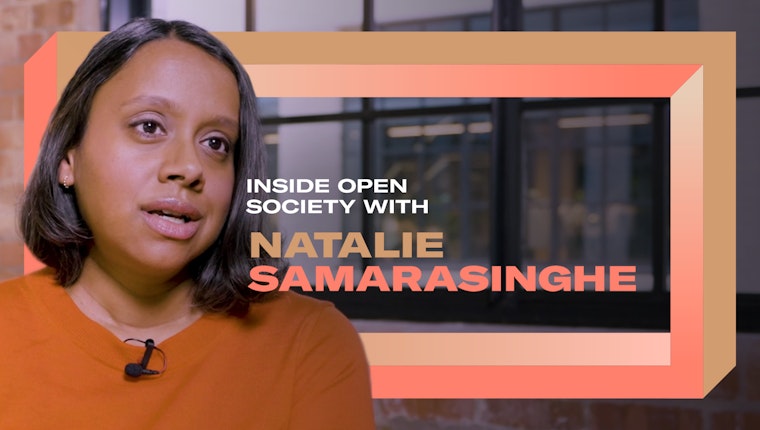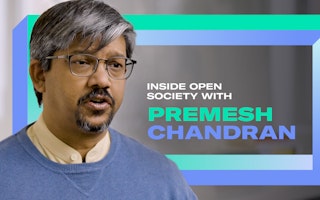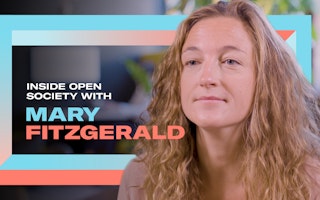Shared Global Threats Demand Solutions Shaped by Justice
By Natalie Samarasinghe

When I tell people—my parents, my children, my friends—that I lead global advocacy at Open Society, they don’t really understand what that means. It’s one of those words that sounds elitist, like jargon.
For me, it’s very simple: it’s about change. It’s about supporting people who are fighting for their rights, their needs, their future; bringing their case to those in power; and leveling the playing field by looking at how to make systems fairer and more effective.
Over the years, I have been fortunate to work with a range of organizations—from the United Nations at one end of the scale, to tiny, scrappy grassroots groups at the other. Along the way, I have had the privilege of meeting people from across the world, all of them committed to the same goal: building a more just and equitable world.
But despite their shared ambition, they would often speak past each other, pursuing different—sometimes contrary—approaches. And I would think: if they worked together, they could really make an impact.
And that is how I see my work now, bringing people together, making arguments, presenting evidence to support change: to public policy, international law, people’s lives.
Open Society has worked with civil society groups, with academics, with women and youth leaders for over three decades—providing grants to support their efforts to achieve social, political and economic justice in their communities and countries.
Today, our challenge is to ensure their voices can be heard at the regional and global levels too, in the places where power resides. Today, most of the issues that affect us have a global dimension and require action beyond their borders. That is obvious for issues such as the climate emergency, but it is also true for traditionally domestic issues, such as the cost of living.
So how can we ensure their needs are taken into account in seemingly abstract discussions on global policies that will ultimately have a huge impact on the lives of ordinary people?
Open Society has worked with civil society groups, with academics, with women and youth leaders for over three decades—providing grants to support their efforts to achieve social, political and economic justice in their communities and countries.
Take, for example, discussions on institutions such as the World Bank and International Monetary Fund that were set up in 1944 and still reflect to a great degree the power balance of that time. There is now an urgent need for these organizations to issues such as climate change, but they are not equipped to do so effectively. They are set up in ways that mean those countries most affected by impacts of climate change have little say over how their resources are deployed.
And this power imbalance exists across institutions, underlined not only by the climate emergency but also by three years of our grossly unequal response to the COVID-19 pandemic, and now to the global repercussions of Russia’s full-scale invasion of Ukraine, as rising food and fuel costs have plunged millions into poverty.
All these factors increase pressure on the open society values to which we are committed. We have seen how the pandemic was used by authoritarians to crack down on political freedoms and silence critical voices. We see continuing attacks on environmental defenders who challenge the destruction of their forests and communities.
In established democracies, too, economic pressures have strengthened the siren appeal of those whose supposed solutions are rooted in nationalism and xenophobia. Internationally, Russia’s war against Ukraine has further damaged an already failing global political order.
These are huge challenges—and there is no way that Open Society can overcome them. We don’t have the vast resources needed to bring about the systemic change we need.
But I draw inspiration for the millions of people around the world who continue to fight for a better future—from those on the frontline in Ukraine, to those helping communities in countries that never make the headlines and those continuing to advocate for women’s rights, for refugees, for climate action.
And my hope is that we at Open Society can help them—by amplifying their voices and speaking up when they cannot, by championing bold solutions and providing them with the tools they need, by connecting them with partners in different sectors and fostering powerful alliances to build open, just and green societies that deliver for all people, everywhere.

Natalie Samarasinghe is the global director for advocacy at the Open Society Foundations.


